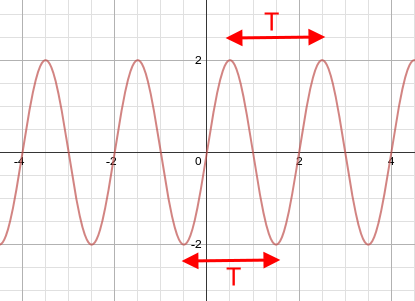
noun
- an act or instance of oscillating.
- a single swing or movement in one direction of an oscillating body.
- fluctuation between beliefs, opinions, conditions, etc.
- Physics.
- an effect expressible as a quantity that repeatedly and regularly fluctuates above and below some mean value, as the pressure of a sound wave or the voltage of an alternating current.
- a single fluctuation between maximum and minimum values in such an effect.
- Mathematics.
- the difference between the least upper bound and the greatest lower bound of the functional values of a function in a given interval.
- Also called saltus.the limit of the oscillation in an interval containing a given point, as the length of the interval approaches zero.
noun
- physics statistics
- regular fluctuation in value, position, or state about a mean value, such as the variation in an alternating current or the regular swinging of a pendulum
- a single cycle of such a fluctuation
- the act or process of oscillating
n.1650s, from French oscillation, from Latin oscillationem (nominative oscillatio), noun of action from past participle stem of oscillare “to swing,” supposed to be from oscillum “little face,” literally “little mouth,” a mask of open-mouthed Bacchus hung up in vineyards as a charm (the sense evolution would be via the notion of “swing in the breeze”); from PIE *os- “mouth” (see oral). n.
- The act of oscillating.
- The state of being oscillated.
- A single oscillatory cycle.
- A stage in inflammation in which the accumulation of white blood cells in the small vessels arrests the passage of blood, thus causing a to-and-fro movement of the blood at each cardiac contraction.
- A repeating fluctuation in a physical object or quantity. See also attractor harmonic motion.
- A single cycle of such fluctuation.
 Liberal Dictionary English Dictionary
Liberal Dictionary English Dictionary